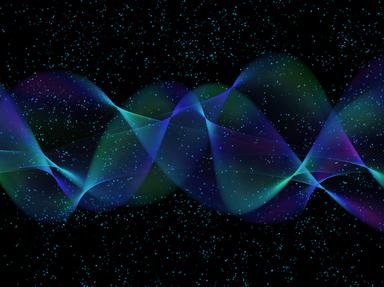Quiz Answer Key and Fun Facts
1. Which is the name given to one of the fundamental principles of quantum physics?
2. What does the word quantum mean?
3. Another idea, which was quite controversial initially, but has long been common ground, is the probability interpretation of quantum mechanics. Which founding father of quantum mechanics put this idea forward?
4. Who said: 'Anyone who is not shocked by quantum theory, has not understood it'?
5. When Einstein famously said "God does not play dice with the universe", what did he mean?
6. The equation which gives the mathematical apparatus for the description of quantum mechanical systems was formulated by, and is named after, which Austrian physicist?
7. Another important principle of quantum mechanics is due to the fact that for quantum particles you cannot determine simultaneously and with precision location and momentum. What is the name of this principle?
8. When a pair of particles is generated or interacts in certain ways, they are said to be "entangled". What does this mean?
9. Experiments show that for entangled particles, the effect the location measurement of the first particle has on the second particle, is non-local. What does non-locality at quantum level mean?
10. Which of the following options is a quotation by Physics Nobel Price winner Richard Feynman about quantum physics?
Source: Author
malama
This quiz was reviewed by FunTrivia editor
rossian before going online.
Any errors found in FunTrivia content are routinely corrected through our feedback system.

